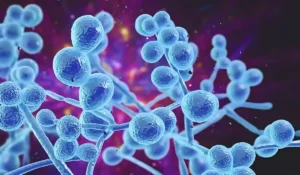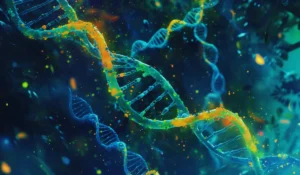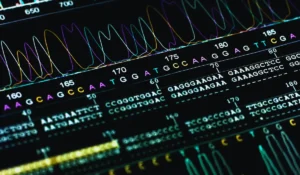When addressing health and disease, it is crucial to acknowledge the significant impact that biological sex has on the human body. The distinctions between males and females are inherent in our biology, encompassing various aspects such as organ structure, organ function, hormonal equilibrium, and immune system. These differences, which go far beyond reproductive health, have long intrigued scientists and clinicians alike.
Recently, there has been a significant increase in interest regarding the impact of these biological disparities on the development of cancer and the efficacy of treatments. Cancers affecting non-reproductive tissues such as the lungs, liver, and brain, often show distinct patterns in terms of how often they occur and how they progress, which are specific to each sex. In general, males are more commonly diagnosed with these types of cancers and tend to have worse outcomes compared to females. Nevertheless, the scientific explanation for these differences is still unknown, prompting researchers to explore the genetic, hormonal, and immune factors that may offer insight.
With the advancement of knowledge in cancer immunology, it has become evident that immune responses differ between males and females. Hormones such as estrogen and testosterone influence the behavior of immune cells, and the genetic disparities between X and Y chromosomes also play a role in these variations. Increasing evidence suggests that sex-based differences in the immune system can affect both the risk of developing specific types of cancer and the effectiveness of advanced immunotherapies.
Scientists have been prompted to reevaluate cancer treatment approaches due to an increased awareness of sex differences. They are now focusing on the potential for more effective and personalized strategies. By exploring the complex relationship between sex, immunity, and cancer, we can gain valuable knowledge that has the potential to transform the field of oncology for both males and females.
Examining the Biological Disparities
To comprehend the biological basis of sex disparities in non-reproductive cancers, one must examine the intricate relationship between hormones, chromosomes, and gene expression. These factors collectively influence the unique patterns in which cancer develops and advances in males and females.
Hormonal Influence
Hormones act as potent regulators of the body’s physiology, and the hormonal disparities between males and females have a crucial impact on cancer biology. Testosterone, the predominant male sex hormone, and estrogen, the primary female hormone, exert distinct effects on the immune system, impacting its ability to identify and combat cancer cells.
Androgens and Cancer: Testosterone and its powerful derivative, dihydrotestosterone (DHT), mainly attach to the androgen receptor (AR), affecting the development of specific types of cancer. The activation of androgen receptor (AR) can induce immune cell exhaustion, resulting in diminished efficacy in combating tumors, especially in male individuals with non-reproductive malignancies. In the case of colon and bladder cancers, the activation of androgen signaling has been linked to elevated levels of depleted CD8+ T cells and enhanced tumor growth.
Estrogens and Cancer: Estrogen, which is more abundant in females, exerts its effects by binding to estrogen receptors (ERs) and regulating immune responses. It has a tendency to improve the efficiency of immune cells such as CD8+ T cells and aids in the production of powerful antitumor cytokines. Nevertheless, estrogens can also facilitate immunosuppression in specific circumstances by stimulating regulatory T cells and other cells that can impede the immune response. The intricate dual function of this role has varying effects on the advancement of tumors in different types of cancer.
Genetic and epigenetic factors
The genetic and epigenetic differences between male and female cells, influenced by sex chromosomes and their interaction with the genome, contribute an additional level of intricacy to the field of cancer biology.
Sex chromosomes:
The X chromosome is found in two copies in females and only one copy in males. It contains genes related to the immune system that can avoid X chromosome inactivation (XCI), which is a process that silences one X chromosome in female cells. This phenomenon leads to increased expression of these genes in females, granting them certain genetic benefits in immune function.
The Y chromosome, found only in males, harbors distinct genes that influence male-specific biology. Nevertheless, the absence of the Y chromosome (referred to as Loss of Y or LOY) in male immune and cancer cells can hinder the effectiveness of the immune response against tumors and is associated with unfavorable cancer results.
Epigenetic mechanisms:
DNA methylation is a chemical modification that can inhibit gene activity and is frequently associated with cancer when not properly controlled. Differences in DNA methylation patterns based on sex influence the expression of genes related to the immune system, potentially modifying the risk of developing cancer.
Histone modifications, such as the actions of proteins like histone lysine demethylases (KDMs), alter the accessibility of genes, thereby impacting immune function. In females, the X-linked KDM6A gene is frequently overexpressed, resulting in enhanced immune responses.
The complex relationship between sex hormones, genetic factors, and epigenetic factors is highlighted by these biological differences, which have a significant impact on the risk and progression of cancer. The interplay between our genetic makeup and immune system is revealed, which ultimately shapes the distinct patterns of cancer development and response to treatment observed in males and females.
The Immune System’s Role in Cancer
The immune system has an essential role in identifying and eradicating cancerous cells. Nevertheless, the variations in immune reactions between males and females, influenced by sex hormones and genetic factors, have a substantial impact on the recognition and combat of tumors. Sex hormones such as androgens and estrogens have an impact on various types of immune cells and play a role in shaping the body’s defense against cancer.
Cytotoxic T lymphocytes (CD8+ T cells)
CD8+ T cells, commonly referred to as “cytotoxic” T cells, have the primary function of directly targeting and eliminating cancer cells through attack and destruction. Their role is crucial in regulating tumor proliferation.
Androgens, such as testosterone and dihydrotestosterone, can induce CD8+ T cell exhaustion, especially in males with elevated levels of these hormones. This phenomenon, known as T cell exhaustion, occurs when T cells experience a decline in their capacity to combat cancer as a result of prolonged exposure to tumors. Androgen signaling enhances the production of exhaustion markers and decreases the release of crucial antitumor cytokines, thereby impeding the ability of CD8+ T cells to effectively fight against tumors.
Estrogens typically augment the activation of CD8+ T cells in females, thereby enhancing their capacity to identify and eliminate cancer cells. This hormone facilitates the synthesis of effector cytokines such as interferon-gamma, thereby enhancing the immune response. Estrogen’s effect can differ depending on the type of cancer, sometimes resulting in a weakened immune system.
CD4+ T cells
CD4+ T cells, also known as “helper” T cells, coordinate the immune response by releasing signals that impact other immune cells.
Testosterone has been demonstrated to hinder the transformation of CD4+ T cells into pro-inflammatory T helper 1 (TH1) cells, which play a crucial role in initiating antitumor responses. On the contrary, androgens have the ability to stimulate the development of regulatory T cells (Tregs), which have the function of suppressing immune responses and potentially aiding tumors in evading attacks from the immune system.
Estrogens have distinct effects on the differentiation of CD4+ T cells. They stimulate the growth of TH1 cells, increasing the inflammatory reactions against cancer. Nevertheless, they also facilitate the proliferation of regulatory T cells in certain situations, potentially offering a means for tumors to evade the immune system.
Natural killer cells
Natural killer (NK) cells are a type of immune cells that are part of the innate immune system. They have the ability to quickly recognize and attack cancer cells without needing to be previously exposed to them.
Androgens have the potential to hinder the function of NK cells, thereby diminishing their capacity to identify and eliminate cancer cells. The decrease in NK cell cytotoxicity in prostate and bladder cancers is caused by the activation of inhibitory signals through androgen-mediated upregulation.
Estrogens have a multifaceted impact on NK cells. In certain types of cancers, these cells can be inhibited, reducing their ability to multiply and perform their antitumor functions. However, the extent of this inhibition is influenced by the specific circumstances and may differ among different types of cancer.
Cells of the myeloid lineage
Myeloid cells, such as macrophages and myeloid-derived suppressor cells (MDSCs), can exert a wide range of influences on cancer, ranging from directly assaulting tumors to promoting their proliferation.
Androgens have the ability to stimulate the development of myeloid cells that promote tumor growth, such as macrophages and MDSCs. These cells establish an immunosuppressive milieu that facilitates the growth of tumors by suppressing the function of T and NK cells.
Estrogens exert a substantial influence on myeloid cells. They have the ability to stimulate the development of MDSCs from bone marrow precursors, resulting in immune suppression. In certain instances, estrogens may stimulate myeloid cells to adopt an antitumor function, contingent upon the particular signaling pathways and cancer circumstances.
The variations in immune function, influenced by hormones, elucidate certain dissimilarities in the occurrence and consequences of cancer among males and females. Additionally, they emphasize the possibility of creating customized treatments that target these particular immune obstacles, thereby improving the capacity of both genders to combat cancer more efficiently.
Implications for Cancer Therapy
The biological and immune disparities between males and females significantly influence the efficacy of cancer treatments. These disparities impact the efficacy of treatments, especially in the field of immunotherapy. This article examines how gender-specific factors influence the development of tailored therapies, existing treatment approaches, and potential future advancements.
Developing Gender-Specific Treatments
As scientists reveal the mechanisms responsible for differences in cancer biology between sexes, it is becoming more evident that personalized medicine is essential. These are the particular factors that are guiding this approach:
The immune response can be significantly affected by hormonal therapies that regulate testosterone and estrogen levels, leading to a notable impact on the immune system’s ability to identify and eliminate cancer cells. Combining androgen deprivation therapy (ADT) with immunotherapy can enhance the treatment response in males with androgen-sensitive tumors, such as prostate cancer.
Sex chromosomes and gene expression: Genetic variations on the X and Y chromosomes influence the expression of immune genes and the growth of tumors. Medications that focus on particular pathways affected by these chromosomes could be customized for males and females.
Current Treatments Leveraging Insights
Several treatments already utilize biological and immune disparities to enhance effectiveness:
Immune Checkpoint Inhibitors (ICIs) are pharmaceuticals such as pembrolizumab, nivolumab, and ipilimumab that specifically target proteins responsible for suppressing T cell activation. By doing so, these drugs enhance the body’s immune response against tumors. Meta-analyses indicate that male patients frequently exhibit a more favorable response to immune checkpoint inhibitors (ICIs), which is likely attributed to a greater tumor mutational burden (TMB) and a distinct tumor microenvironment. Nevertheless, females are more prone to experiencing negative immune effects, necessitating cautious consideration in treatment.
Hormonal therapies are essential in the treatment of hormone-dependent cancers, such as breast and prostate cancer. These therapies involve the use of medications that regulate hormones, such as tamoxifen (an estrogen receptor modulator) and aromatase inhibitors. By integrating these treatments with immune therapies, it is possible to enhance the effectiveness of the responses.
Future Therapeutic Strategies
Future treatments must integrate a more profound comprehension of biological sex and its impact on cancer.
Immunotherapies and hormonal treatments can be combined to augment the immune response. Combining immune checkpoint inhibitors with androgen deprivation therapy has the potential to enhance outcomes in male patients.
Epigenetic modulation involves targeting the distinct epigenetic variations between males and females to reprogram immune cells and enhance their responsiveness. Pharmaceuticals that block histone modifiers such as KDM6A or BET inhibitors have the potential to alter the immune system.
Sex-specific biomarkers are essential for identifying and validating predictive biomarkers for cancer response based on an individual’s sex. These markers may encompass genetic, hormonal, and immunological factors that can be used to inform personalized treatment choices.
Understanding the distinct biological and immune variations between males and females is crucial in the development of more efficient, gender-specific cancer treatments. By utilizing these valuable observations, researchers and clinicians can enhance treatment approaches, reduce adverse effects, and introduce a revolutionary era of tailored oncology. As the scientific community’s comprehension of these mechanisms deepens, the possibility of enhanced results for both genders will persistently expand.
Final Remarks
The presence of sex differences in cancer biology and immune responses has a significant impact on the development and progression of the disease in both males and females. The variations in immune cell behavior and the tumor microenvironment are influenced by the interaction of hormones, genetics, and epigenetic modifications, all of which have a significant effect.
Important Observations:
Biological Foundations: Hormonal disparities between males and females impact the likelihood of developing cancer and the resulting outcomes. Androgens and estrogens have distinct effects on immune cell functions, which in turn impact the occurrence of cancer and the response to treatment.
Gender disparities exist in the immune system’s response to tumors, with male and female immune systems exhibiting distinct reactions. Androgens have a tendency to induce T cell exhaustion in males, whereas estrogens can either augment or inhibit immune activity, depending on the circumstances.
Genetic and epigenetic factors: The X and Y chromosomes contain genes that control immune responses in a distinct manner between males and females. The process of X chromosome inactivation and escape has an impact on immune regulation, whereas the absence of the Y chromosome in males raises their vulnerability to specific types of cancer.
Therapeutic implications: The existence of biological differences informs the development of cancer treatments that are specific to each sex. Immunotherapies, hormonal treatments, and emerging epigenetic drugs can be utilized to offer customized and efficient medical care. Customized approaches that take into consideration gender-based disparities are likely to enhance patient results and reduce negative consequences.
Conclusion: Developing an extensive knowledge of the intricate nature of sex differences in cancer biology provides a straightforward route to developing more efficient and tailored treatments. By taking into account these differences, medical practitioners can create specific therapies that correspond to the individual biological characteristics of each patient, ultimately transforming the field of cancer treatment for both males and females. Further investigation in this field will undoubtedly reveal groundbreaking therapeutic approaches that utilize the complete capabilities of the immune system and genetics in combating cancer.







